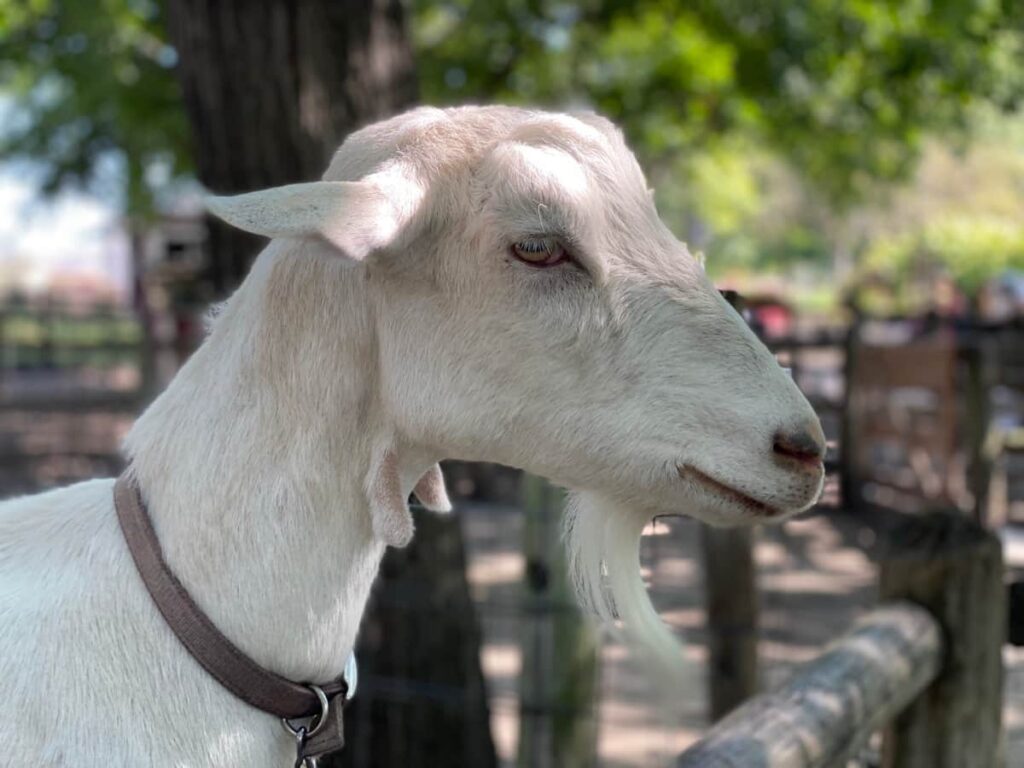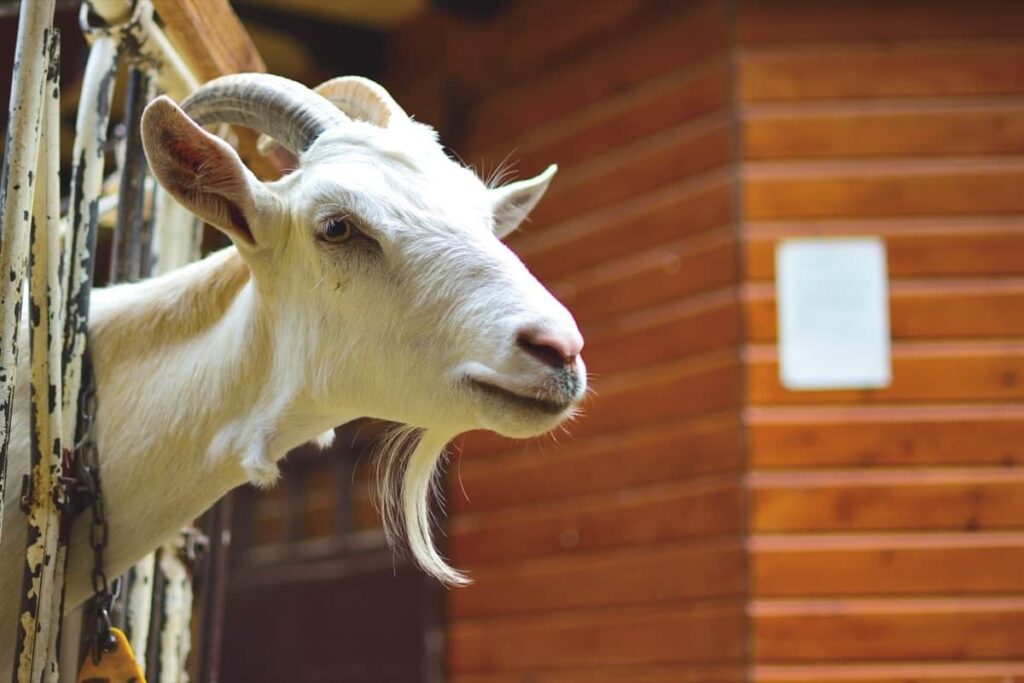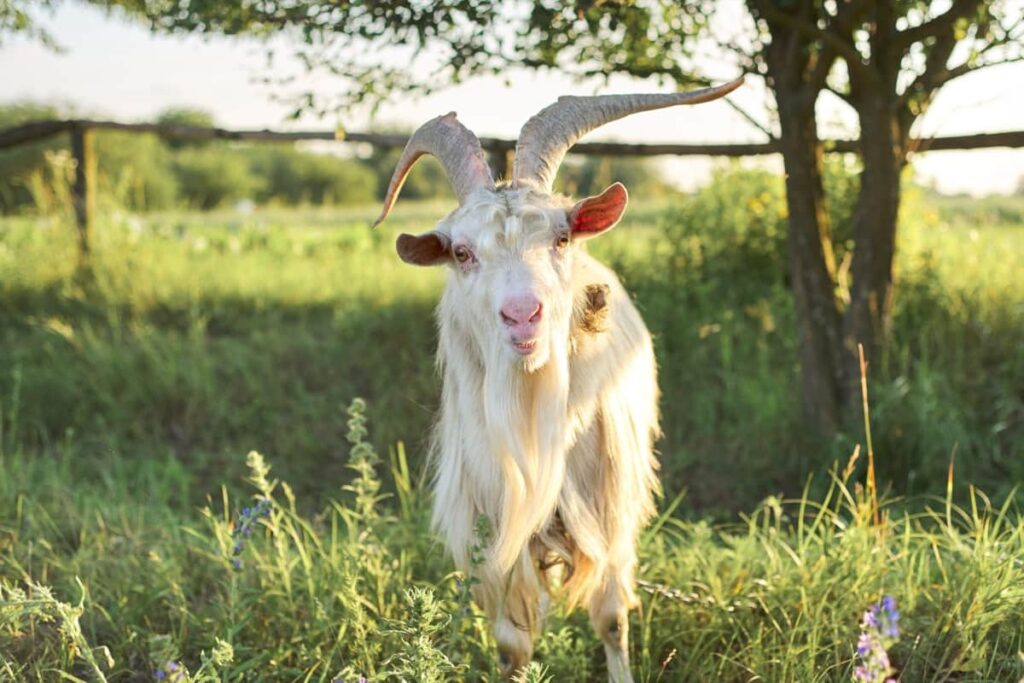Goat farming has been an integral part of the Kashmiri economy for centuries. Goat farming has become integral to many rural economies worldwide because these hardy animals can thrive under tough conditions with minimal resources. Let’s check out more information about goat farming in Kashmir Valley below.

Goat Breeds Available in Kashmir
- Goat farming is a popular industry in Kashmir, and one of the most valuable breeds raised there is the cashmere goat. Also known as the Kashmir goat, this breed produces fine wool to make luxurious cashmere shawls.
- Another breed found in Kashmir is Pygora goats. These are a crossbreed between Pygmy and Angora goats, resulting in an animal with a soft fleece that can be harvested for both fiber and meat production.
- Changthangi goats are another local breed found in Kashmir. Goats have adapted to living at high altitudes and produce cashmere wool like the Kashmir goat.
- Bhakarwali goats are also prevalent in this region. These hardy animals have thick coats that protect them from harsh winters and predators.
Why Goat Farming is Popular in Kashmir?
- Goats are well-suited to the mountainous terrain of Kashmir and can survive harsh winters. They require minimal shelter and can graze on steep slopes that other livestock cannot access.
- Goat products like meat and milk have high demand in local markets. Goat meat is considered a delicacy in Kashmiri cuisine, while goat milk is used to make cheese and yogurt.
- Goats provide an important source of income for many rural families in Kashmir.
- Due to its favorable climatic conditions, goat farming has been practiced for centuries in the Kashmir valley. The region’s hilly terrain provides ample grazing land for goats, making it an ideal location for raising them.
- Goat farming is a popular agricultural practice in the beautiful valley of Kashmir. This region has been known for its rich biodiversity and natural resources, making it an ideal location for goat rearing.
Steps to Start Goat Farming in Kashmir Valley
- You need to decide what type of goats you want to raise. Some popular breeds include the cashmere goat, Pygora Changthangi and Bhakarwali. Each breed has its characteristics and advantages.
- Next, find a suitable location for your farm. Ensure the land is spacious enough for your goats to graze freely and securely. Also, make sure there’s access to clean water sources nearby.
- After that, set up housing facilities for your goats. This includes building sheds or barns with adequate ventilation and insulation from extreme weather conditions. You’ll need appropriate fencing around the grazing areas, protecting you from predators like wild animals or thefts.
- Then purchase healthy breeding stock from reputable suppliers or farms. It would help if you only bought strong and disease-free animals, as this will affect the productivity of your herd. Purchase only high-quality breeding stock from reputable breeders who can guarantee that their animals are free of diseases or genetic defects.
- Ensure proper feeding schedules for your herd by providing them with daily rations of hay or fresh pasture grasses, essential minerals, and vitamin supplements.
- Apply for all necessary licenses required by local authorities before starting operations.
Feeding Management for Goat Farming in Kashmir
- Goats’ primary food source is hay and grass, which contain the necessary nutrients to stay healthy. However, goats are also browsers who love to nibble on leaves, twigs, and shrubs.
- A well-balanced diet should include protein-rich grains such as corn or barley. Feeding grains in small amounts is best since too much can cause digestive problems.
- Goats enjoy fruits and vegetables like apples and carrots but only give small portions as treats rather than their main meal. It’s important not to overfeed your goats with sugary foods because it can lead to obesity-related health issues.
- Fresh water always be available for your goats since they require ample hydration for optimal digestion and overall health. A well-balanced diet of hay or grasses, protein-rich grains, and freshwater daily will ensure happy and healthy goats.
In case you missed it: Innovative Housing and Shelter Designs for Profitable Goat Farming

How to Care for Goat Farms in Kashmir?
- Caring for goats is essential to ensure their good health and productivity. The main step in caring for goats is providing proper shelter, which should be clean, ventilated, and dry. Goats need space to move freely, so ensure the pen or barn provides enough space.
- In addition to shelter, goats require a balanced diet of hay, grains, minerals, and water. You can supplement their diet with fresh greens like clover or alfalfa. It’s important not to overfeed your goats as it can lead to health problems.
- Goats also need regular grooming, such as brushing their coats regularly to maintain cleanliness and prevent the matting of hair. Trimming hooves every few months prevents foot problems that could lead to lameness.
- Watch for any illness signs in your goat, such as loss of appetite or excessive lethargy. Regular visits from a veterinarian are recommended even if the goat doesn’t appear ill.
- Caring for goats requires time and effort, but it’s worth it when you see healthy, happy animals thriving on your farm.
Tips for Successful Goat Farming in Kashmir
- Proper Housing: Goats need a comfortable and clean-living space to grow healthy and produce high-quality milk or meat. Ensure the housing is well-ventilated, spacious, and protected from extreme weather conditions.
- Feeding Management: Providing high-quality feed in sufficient amounts is crucial for goat farming success. A balanced diet with essential nutrients like protein, carbohydrates, minerals, and vitamins will help goats stay healthy and productive.
- Health Care: Regular health check-ups by a veterinarian are critical to detect any illness early and prevent it from spreading throughout the herd. Vaccinations against common diseases should be provided timely.
- Hygiene Maintenance: Maintaining the cleanliness of the farm area reduces the risk of infections among goats that can impact their overall health status.
- Breeding Selection: Choosing quality breeding stock ensures good genetics within your herd leading to higher productivity.
- Marketing Strategy Development: Building relationships with potential buyers before producing your products is key to successfully selling them once produced.
Goat Farming Challenges in Kashmir
- One of the main challenges is the unpredictable weather patterns that can affect grazing lands and water sources. This can lead to feed and water shortages, ultimately impacting goats’ health and productivity.
- Another challenge goat farmers face is the lack of access to proper veterinary care. Many rural areas do not have qualified veterinarians or adequate livestock medical facilities, making it difficult to diagnose and treat common goat illnesses.
- Additionally, finding suitable markets for selling goat products like meat, milk, or wool poses a significant challenge, as limited options are available locally.
- These challenges can be overcome with proper farm planning on best practices in goat farming techniques and government support programs such as subsidies on animal husbandry loans or training programs for farmers.
In case you missed it: Goat Breeding and Genetics for Improved Productivity and Disease Resistance

Conclusion
Starting a goat farming business in Kashmir can be exciting and profitable. Successful goat farming involves proper care and management of your animals. This includes providing adequate nutrition, shelter from harsh weather conditions, and regular veterinary check-ups.
- Goat Milking Practices and Equipment: A Beginner’s Guide
- Goat Farming for Fiber: Producing Mohair and Cashmere
- Maximizing Goat Milk Production: Tips for Dairy Goat Farmers
- Goat Farming as a Family Business: Strategies for Success
- Profitable Kenya Goat Breeds for Commercial Dairy and Meat Business
- Unlock the Secrets of Oberhasli Goat: Discover Raising and Management Practices
- Ultimate Guide to Myotonic Goats: Explore Profile to Raising
- Unlock the Secrets of Rove Goat: Discover Management Practices
- Ultimate Guide to Malwa Goat: Explore from Origin to Management Practices